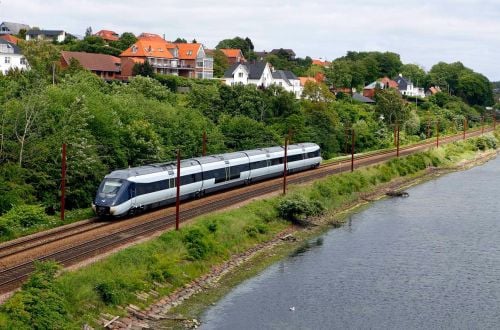The announcement came as DSB published detailed proposals on plans for the acquisition of new trains, which will replace the IC3 and IR 4 trains as well as the ill-fated AnsaldoBreda IC4 DMUs, expand the fleet to boost capacity, and meet the increased requirement for electric trains as more lines are electrified.
The report, which was drawn up by external consultants, recommends the procurement of 204 trains, which will be 80-110m long, providing a total of 43,000 seats. This will enable DSB to increase overall seating capacity from 59,000 seats in 2016 to 65,000 seats in 2030. The total value of the order is estimated to be DKr 14-17bn ($US 2.1-2.6bn).
Approval of tender documents is expected by the end of 2017 and the contract will be awarded in the second half of 2019.
The strategy calls for “steady phasing in of new equipment” with the delivery of three trains per month between 2024 and 2028, with the final trains arriving in 2029. These trains would only be for domestic use, but the report highlights a requirement for rolling stock for international services. Dual voltage trains would be required for operation into Germany from 2028 and Sweden from 2034, when the current Øresund trains will be phased out. These trains would be acquired separately from the main contract.
The phasing out of the IC3 and IR4 fleets will reflect the delivery schedule for the new fleet. The final phase-in rate will be determined before the contract is signed in 2019.
In contrast with IC4, the report stresses the importance of adopting a proven platform for the procurement, with a uniform fleet considered the most cost-effective option. “We must avoid the fatal mistakes that were made with the acquisition of IC4,” says transport, building and housing minister Mr Ole Birk Olesen. “The proposals are a major step towards replacing DSB’s outdated fleet and introducing stable and modern electric trains.”

